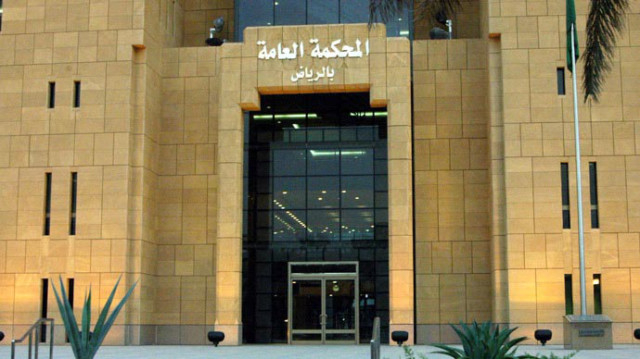
The Saudi Justice Ministry has gone through extraordinary changes in the last few years. From batches of fresh young graduates in Sharia to the introduction of female lawyers, the transformation that is ongoing is sure to benefit the residents. But it was not long ago when people would simply shudder when asked about their experience with the Sharia courts. The courts that were set up to mete swift and wise judgement appeared to have little consideration for the needs of the public they were meant to serve.
Judges came from diverse backgrounds and regions and with varying degrees of education. As judgements are predisposed to be in line with Sharia, interpretation of such laws is often left to the individual handing out justice. And individual judges are habitually influenced by their own personal and regional beliefs in Sharia, which, in Saudi Arabia, can vary from the very harsh to the fairly lenient. It is not unusual to hear about some out-of-the-ordinary judgement handed out by Saudi courts.
There is also the matter of time. How long a person waits for a case to be heard or a verdict delivered is very much at the whim of the judge appointed to hear the case. And some cases have been known to drag for months and years to reach any form of resolution. Also, the general view the public holds on Saudi Arabia’s esteemed judges is that they rarely appear in court on time.
A not-so-recent experience summed up one Saudi’s interaction with judges. Applying for a Saudi passport for his foreign wife, he had collected the 37 necessary documents and what seemed a thousand or so affidavits as required by the Civil Bureau. One of the last steps was to appear before a judge to get one of the documents approved.
Certification
He relates: “After several trips to the court, I finally managed to garner an audience with the designated judge — one from a well-known tribe. Giving my documents a cursory glance, he demanded that I produce an attestation that my wife was a Muslim. I replied that such a document did exist in the large file in front of him. As he shuffled endlessly through my file, I quickly pointed out the certification issued by the Islamic Institute in Los Angeles. ‘But that’s in English and from a foreign country,’ he replied sternly, as he pushed my file away. ‘You have to get one in Arabic and from our courts. Go over to the Islamisation Section and get one!’”
“But my wife is a Muslim, has performed the Haj, has been to Makkah and Madinah several times. Whether the certificate is in English, Sanskrit or French, what difference does it make? Is Islam any different here than in any foreign country? Now why would I need another paper to add to this voluminous file?”
“‘That is the law. Now go on and don’t waste my time any further,” he admonished. Defeated at my attempts to break through this man’s sense of reasoning, I made my way to the section only to be told that the translator who was to hear my wife’s Shehada, or claim to Islam, was on vacation for two months. “Two months!”, I yelled at the clerk manning the desk. “What am I supposed to do until then? This matter is already dragging for a year now between the several bureaucracies and I want to finish it now.” He shrugged, telling me he could not do anything to help me.
“With rising temper I made my way back to the judge. This matter had been dragging on for months and I had to put an end to it. Suddenly I felt I had an ace in my pocket that I was going to spring on him as a last resort. “Look at the marriage certificate that was obtained from these courts some years ago and tell me who the presiding judge was?” I told the judge.
“Reluctantly, he shuffled through my file again and came upon the copy. ‘Now tell me Shaikh, isn’t that your name, stamp, signature and validation underneath? And what exactly is stated where my wife’s religion is supposed to be mentioned?’
“With my blood now racing to boiling point and sensing the stonewall beginning to crumble, I continued my attack. ‘And didn’t you yourself claim her guardianship, as she had no family member here? And if she was a Muslim then, what has changed now? Why in God’s name does she need another piece of paper to prove that — unless perhaps you made a drastic error of judgement then?’ This last piece was delivered laced with sarcasm.
“He stared at the paper for what seemed to be a long time, glared back at me for even longer and finally with great reluctance put his signature and stamp on the required document. Gathering my file quickly and before he had a chance to change his mind, I bolted out of his office and the court building without so much as a glance backwards.”
Fortunately, such cases seem to have subsided although not necessarily ceased. Codifying the system of justice will go a long way in helping put the Saudi legal system in order.
Tariq A. Al Maeena is a Saudi sociopolitical commentator. He lives in Jeddah, Saudi Arabia.








